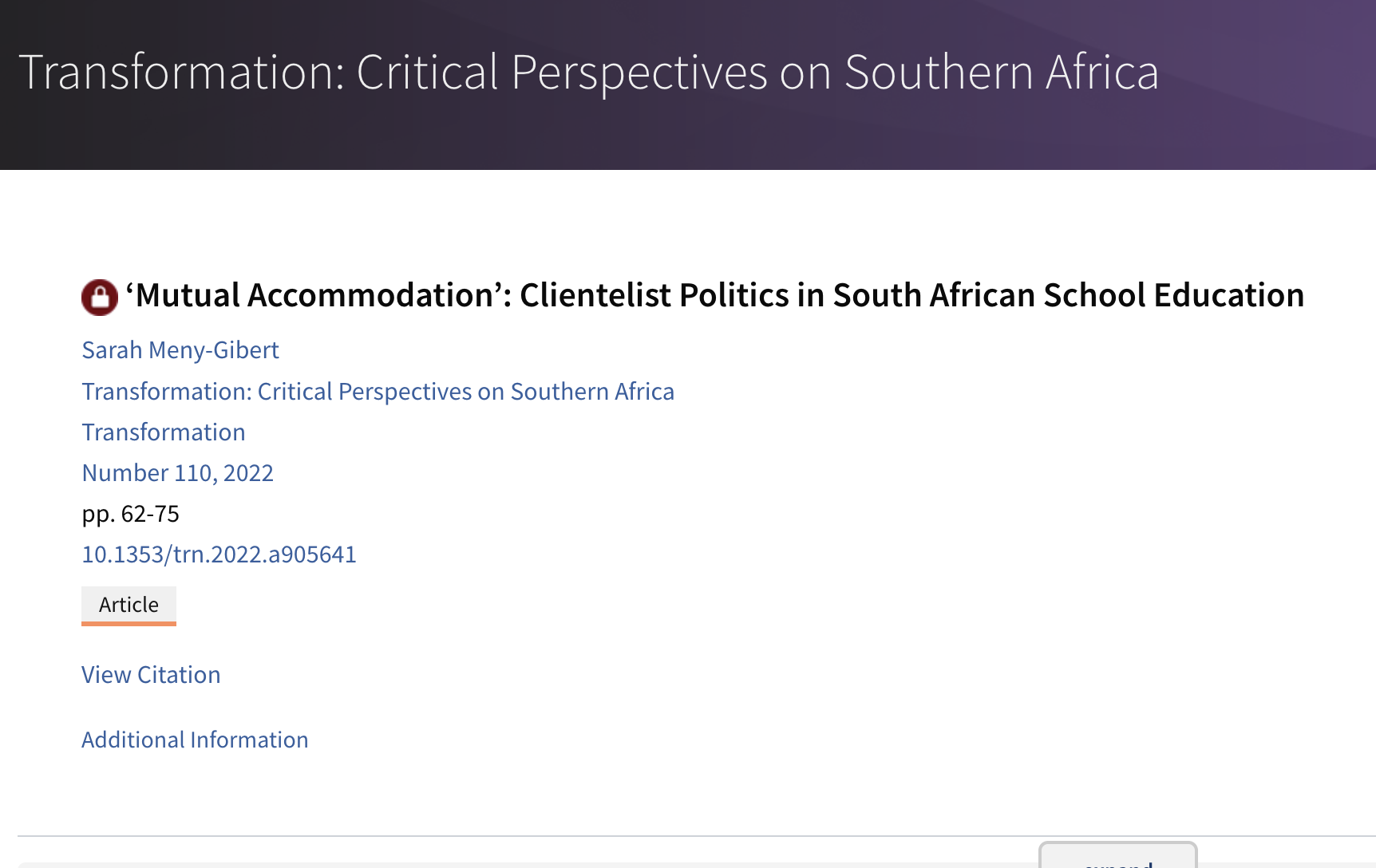By Sarah Meny-Gibert
ABSTRACT
Whilst most post-apartheid public schools in South Africa remain significantly underfunded, the education budget nevertheless provides a significant injection of jobs and public spending into the provinces–into rural provinces with small economies especially. Based on research in the Eastern Cape and Gauteng provinces, I show how a particular form of clientelist politics has taken root in the post-apartheid school education system–one locally organised around ‘promotional’ posts in schools, and disconnected from a clear state, party, or other organisational ‘centre’. Groups of locally organised unionists operate to secure preferential access to these posts, sometimes through the use or threat of violence, sometimes through collusion with district education officials, or with community members who might benefit from access to meagre school budgets. Attempts by residents to secure livelihood strategies in the context of poverty intersect with local strategies of upward mobility on the part of ordinary teachers, and in turn connect loosely, via patterns of ‘mutual accommodation’ with strategies of elite accumulation amongst senior politicians, administrators, and union leaders. In the case of the education sectors in the Eastern Cape and Gauteng provinces at least, on which this article focuses, this constitutes a fragmented yet interlocking system of unstable governance. In this sense, I suggest that there is much in the dynamics of education governance that offers insight into wider patterns of state-society relations around the local state in South Africa.
Citation:


